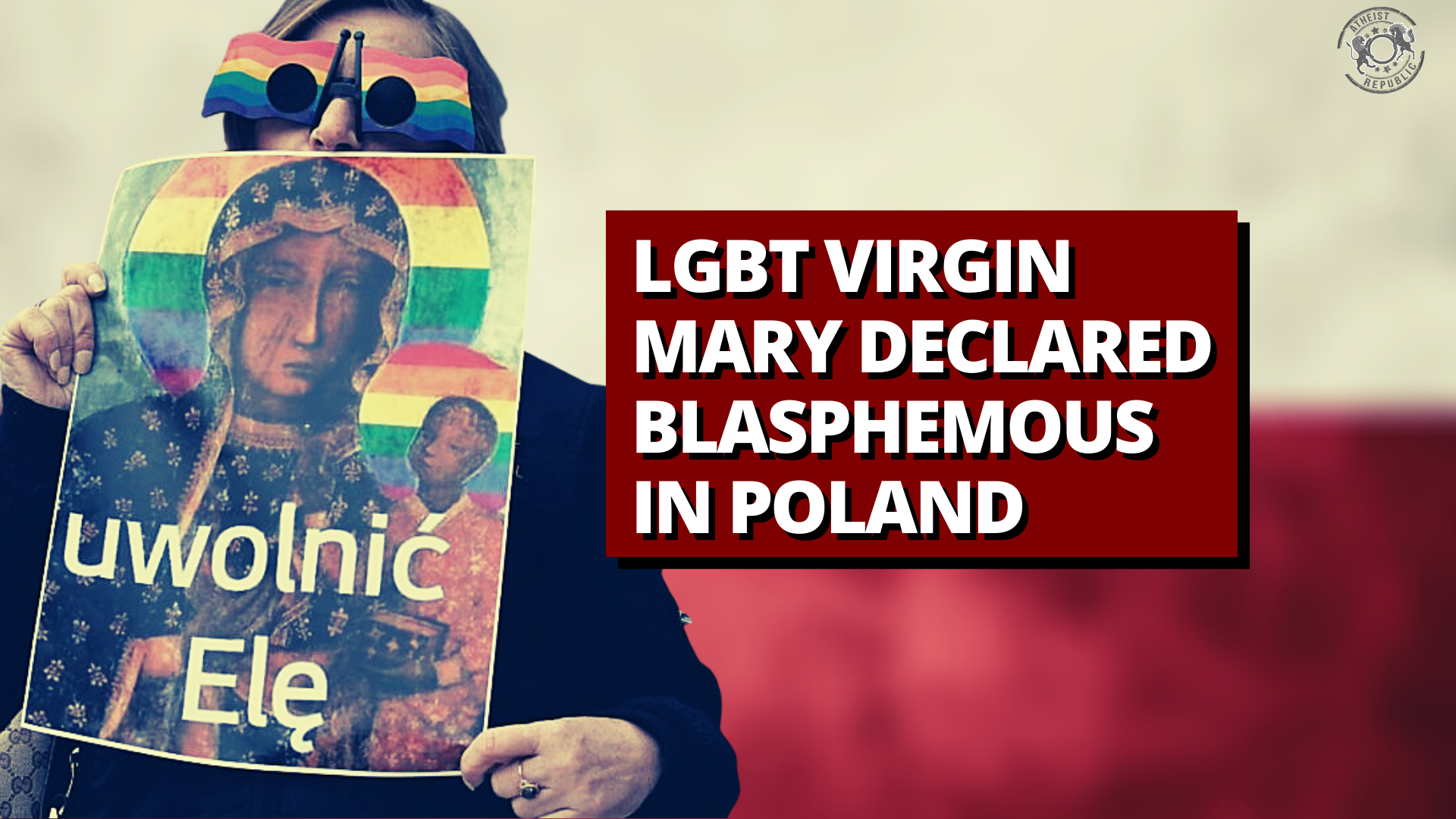
Three female Polish activists are on trial, facing two years in prison for offending religious feelings. They created an image of the Virgin Mary, Poland's sacred icon, wearing a rainbow halo.
The indictment follows an incident in April 2019, when posters and stickers bearing a rainbow-haloed version of the Black Madonna appeared near a church in Płock, a city in central Poland.The doctored image traded the golden halos around the Virgin Mary and the Infant Jesus with representations of a rainbow flag, a common symbol of the LGBT community.
The three activists, Elżbieta Podleśna, Anna Prus, and Joanna Gzira-Iskandar Podleśna, put up rainbow haloed Black Madonna posters to protest a previous display put up by a church. They created the stickers and posters with an LGBT flair in protest of an Easter display the church put up listing sins that believers are supposed to fight against — sins like "greed," "hate," or "envy" and also "LGBT" and "gender." The images quickly became widespread on social media and appearing on banners at subsequent LGBT equality parades.
Imagine you show this image and then face up to 2 years of prison for ‘offending religious feelings’.
Unbelievable?
This is happening right now - in the middle of the EU.
Stand in solidarity with Polish activists in the front line defending human rights
@ILGAEurope pic.twitter.com/tgelcPRy9j
— Terry Reintke (@TerryReintke) January 12, 2021
"What I saw was hatred, contempt, aggression," Prus said, then added that they used the stickers to protest the "hypocrisy" of the church, which hasn't dealt with pedophilia scandals while attacking LGBTQ people.
Authorities charged the women with "offending religious beliefs" under article 196 of Poland's Criminal Code. The code states that "anyone found guilty of intentionally offending religious feelings through public calumny of an object or place of worship liable to a fine, a restriction of liberty, or to imprisonment for a maximum of two years."
Activists put up posters with the same image and the legend "Rainbows don't offend" on several churches in Warsaw and around the ruling Law and Justice (PiS) party's offices.
The controversial image resurfaced in Częstochowa the following month, June 2019, when protesters held it at an LGBT march in the city. Items of clothing and bags also carried the rainbow-haloed Black Madonna depiction.
The trial, which began Wednesday, captivates international attention both for the use of the controversial law protecting religious feelings and raising the issue of LGBTQ rights in Poland.
After authorities arrested Podleśna, they searched her apartment. The police action was "deliberately used as a form of repression," according to the Helsinki Human Rights Foundation.
The ruling nationalists' Law and Justice (PiS) party in Poland applauded the arrest, which persists in unleashing verbal attacks against LGBTQ people to bolster political backing.
Part of the influential Roman Catholic Church's party and its backers described LGBTQ rights as threatening to Poland and its established values. In a 2019 sermon by Archbishop Marek Jędraszewski, he warned that a "rainbow plague" endangered Poland.
Will #PopeFrancis speak out against #Poland's persecution of activists who distributed posters of an #LGBT-friendly Virgin Mary? https://t.co/df91otiZse
— Neela Ghoshal (@NeelaGhoshal) January 18, 2021
Last year, President Andrzej Duda told an election rally that "LGBT ideology" was "more dangerous than communism." Several Polish towns have also declared themselves as borders free of the LGBT ideology, which prompted reprisal from other countries in Europe.
The International Lesbian, Gay, Bisexual, Trans, and Intersex Association ranks Poland as the most anti-gay country in the EU.
